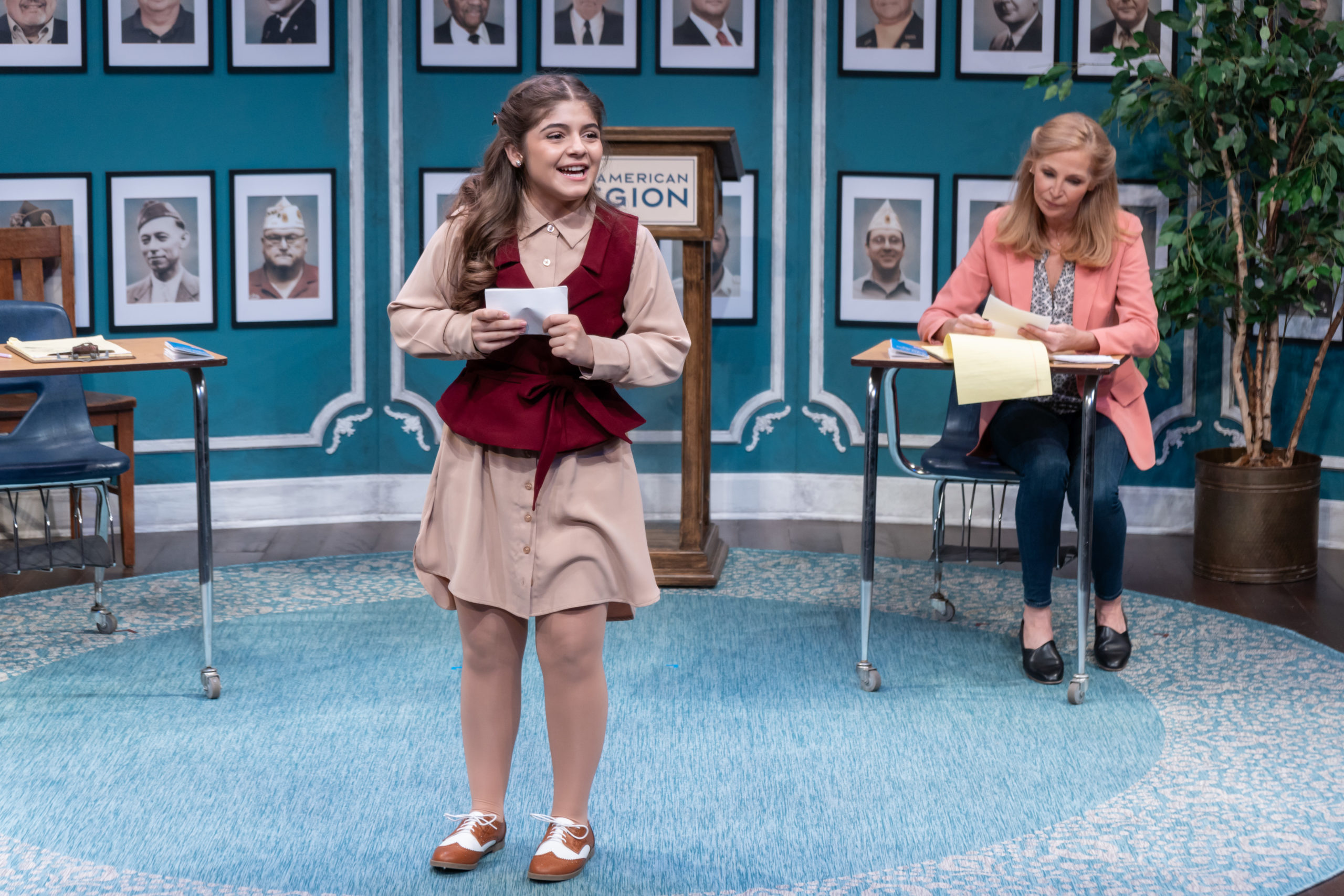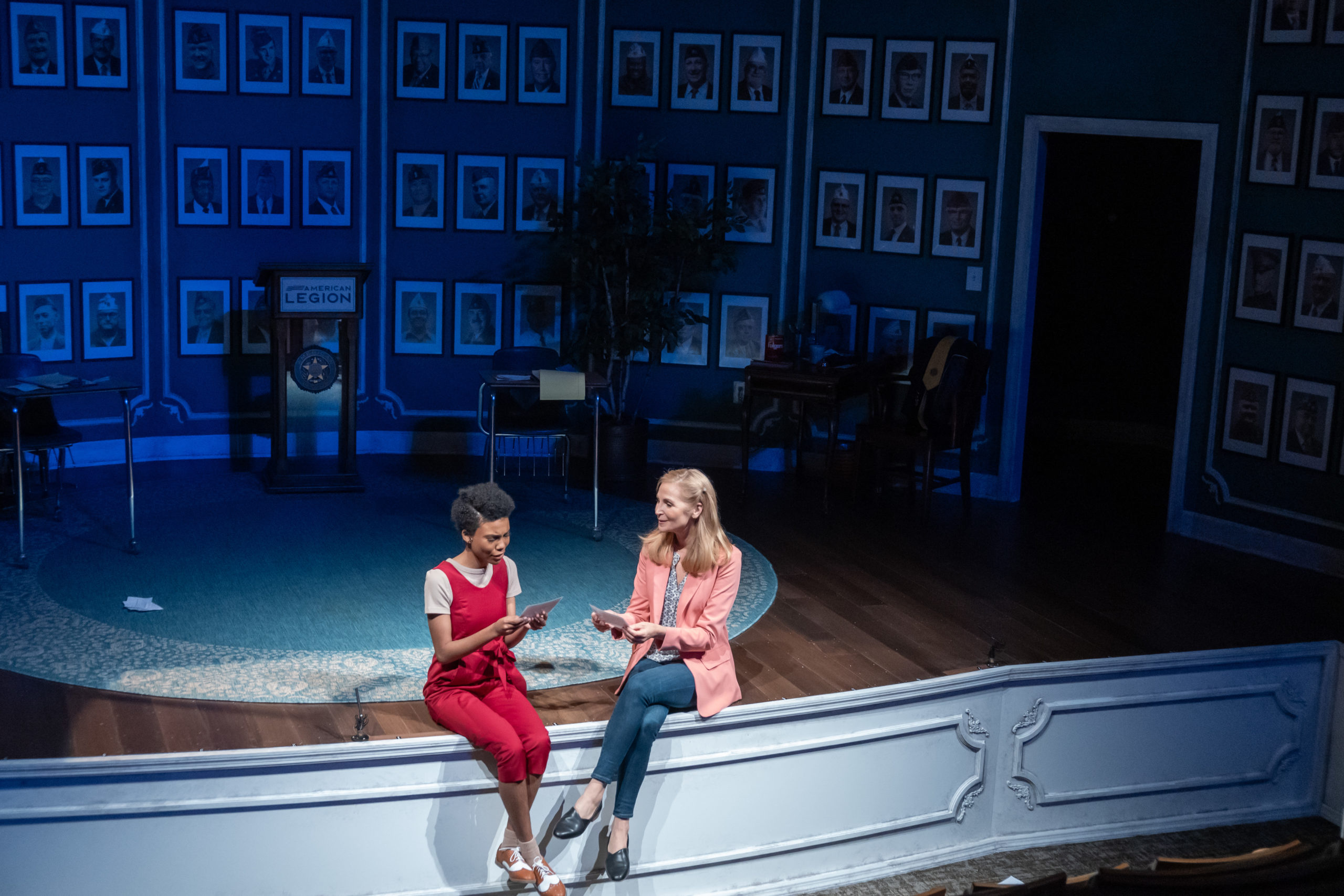
Local theater director Amy Anders Corcoran has taken her talents all over the country, but she is back in Kansas City directing a new show at the Kansas City Repertory Theatre. She first experienced What the Constitution Means to Me in 2019 on Broadway, and is bringing her own vision to the powerful coming-of-age story written and first performed by Heidi Schreck. The show takes the audience on a ride through Schreck’s memories as a 15-year-old debating the Ninth and 14th Amendments, then pivots to a place of reflection, and finally features a live onstage debate. “I’m very interested in what’s happening in the world and what’s happening in our country,” says Corcoran. “Being able to do this play is such a gift. I always say it’s an honor and a responsibility both to direct a story like this.” We spoke to the director to learn more.

Tell me more about your directing style.
I’m directing this differently than I would other things, but I’m very much an actor’s director. I try to be aware of how the material is getting to us. I’m like, “Okay, let’s all get outside for a few minutes. Let’s take a break from this. Let’s talk about something else.”
My guiding principle when I direct is making sure everyone in the room feels like a human and is treated like one. We’ve had great presentations by our dramaturg, an actor and attorney, who comes in and talks to us about the amendments Heidi mentions, giving us real-life examples. That’s been really fun and a great way for me to shake up my process.
How do you navigate directing a play you’ve already seen produced?
I mostly do new work for this reason. I always think, “Wow, they did such a great job. I don’t have anything new to say about it.” But we have this wonderful actor Jennifer Westfeldt, who is phenomenal and hilarious and heartbreaking. She’s such a wonderful actor and leader in the room for these young people.
It’s so inspiring to watch her. Watching these young people watch her work almost brings me to tears—it’s so lovely. I thought it would be harder than it is, but the play is so good and joyful to work on. It deals with difficult subject matter, but it also has a lot of levity. Jen’s take on it is so different and extraordinary that it makes my job easier. I wasn’t as scared of this one because the story itself is so important and other actors are going to have a different take on it than Heidi, which is exciting.

This show involves some audience participation. How does that affect the performance?
It will change a bit from night to night depending on audience participation. We certainly have a structure in place, but there is quite a bit of room for the audience to have a say in the outcome, which is pretty cool. We ask the audience to participate, but not in a scary way. This is low stakes—we’re not making anyone come on stage. But they get to contribute to the way the debate is going, which is fun because, if we all participate, that’s also the way democracy works at its finest. I’ve never directed anything like this, and it’s a lot of fun to be in the room every day with it.
How does the show touch on female-centric narratives?
She talks about her mom, her grandmother, her great-grandmother. When I saw the show originally, there was so much I was so moved by. She had language for things I never really had language for—as far as the fears of being a woman and things we’re not really supposed to talk about as women. I remember hardly being able to move at the end of the play—I felt so connected and so seen. I’m a little bit younger than Heidi, but not a ton, so a lot of things she talked about really resonated for me. I don’t know that there are lots of stories like this for women or female-identifying folks. And oftentimes when there are, we don’t get to tell the stories ourselves. So it feels like the biggest gift; I feel so lucky to work on it.
This interview has been edited for length.


